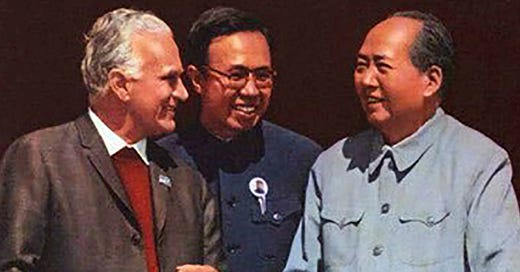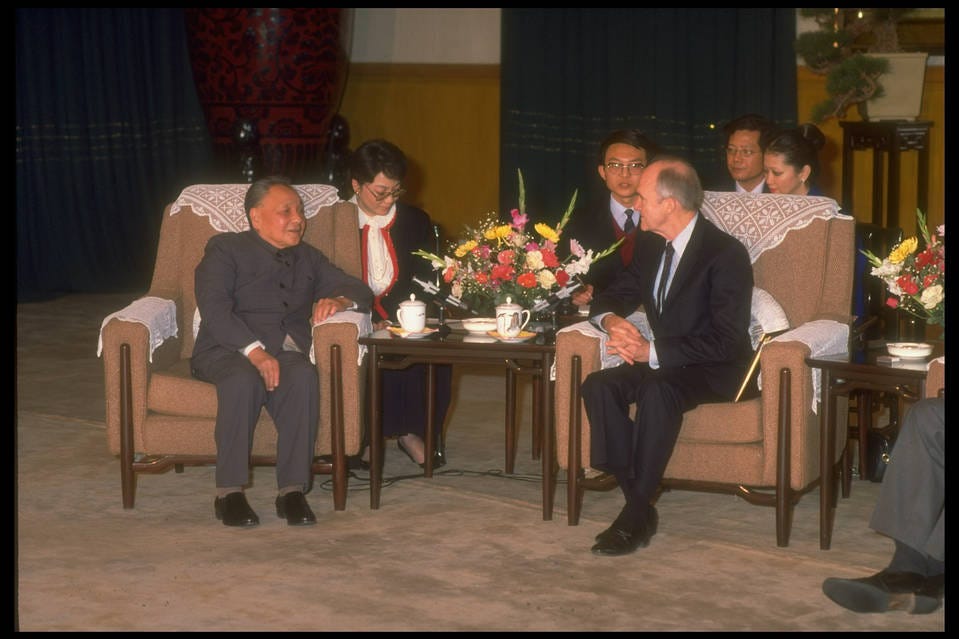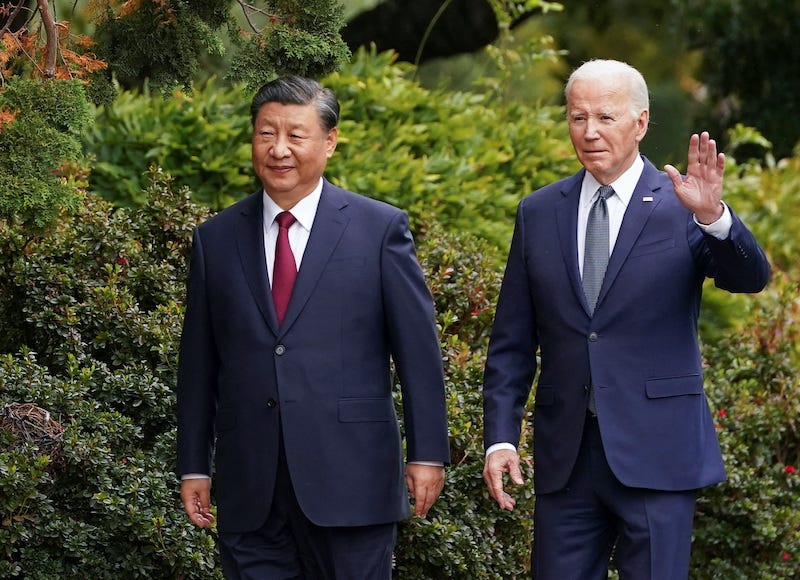For those of you who missed my latest column on SCMP, here it is: China thaw means Beijing can focus on development, not security
President Xi Jinping and his US counterpart Joe Biden have hit the reset button on US-China relations, which have fallen to the lowest ebb in 40 years before their summit of nearly four hours in San Francisco. The talks have not yielded much of significance except for a promise to keep talking, but that is enough to allow the rest of the world to breathe a collective sigh of relief.
The significance of the summit should not be underestimated, not least because gloom and doom had dominated the narrative over the trajectory of the world’s most consequential bilateral relationship before the meeting, particularly after the United States shot down a Chinese "spy" balloon in February.
Biden described the talks as “some of the most constructive and productive discussions we’ve had”. The Chinese side was more upbeat, hailing the summit of “strategic significance and profound influence” and praising Xi’s vision and wisdom on guiding the great power relationship.
But how long will the reset last? As the systemic divisions underlying US-China relations remain unresolved, people have reason to wonder. For example, Biden stressed that both countries should manage their competition responsibly to prevent it from veering into conflict while Xi wondered aloud “are we adversaries or partners?”.
Few would expect the diplomacy between the US and China to return to the level of 20 or 30 years ago, but it is relevant today to learn from the older generations of US and Chinese leaders on how to handle the adversary-partner question at critical moments in the bilateral relationship.
After China’s border conflict with the Soviet Union in 1969, Mao Zedong decided to pivot towards the US. In 1970, he invited American journalist Edgar Snow and his wife to join the National Day celebrations on the Tiananmen Square rostrum, a signal well received by then-US president Richard Nixon, which led to his visit to China in 1972 and full resumption of diplomatic ties in 1979.
In 1989, when international opinion turned against China following Beijing’s bloody crackdown on the Tiananmen protests, Deng Xiaoping met in secret with Brent Scowcroft, national security adviser for president George H.W. Bush, stressing that Sino-American relations must be improved.
When Jiang Zemin was in power, he faced two critical moments which could have seen US-China ties go sideways, manoeuvring with two US presidents in less than three years. In 1999, the accidental US bombing of the Chinese embassy in Belgrade killed three Chinese journalists and enraged the Chinese public. In 2001, a mid-air collision between a US reconnaissance plane and a Chinese fighter jet triggered a major dispute between the two countries.
Jiang handled the two incidents with dexterity and strategic patience, putting bilateral ties back on the right track and securing US support for China’s accession to World Trade Organization, which paved the way for the country’s economic boom in the ensuing two decades.
Now bilateral relations are at a crossroads again. Xi might have abandoned Deng’s long-standing mantra of keeping a low profile and biding one’s time, but he clearly knows the high stakes of stabilising US-China ties.
During his charm offensive in San Francisco, Xi told Biden that “Planet Earth is big enough for the two countries to succeed”. He also reassured US business leaders that the “‘next China’ is still China” as the world’s two largest economies are deeply intertwined, though sceptics might argue that China has changed completely under Xi’s leadership, making it difficult to revert to the good old days.
Together, China and the US account for about one-third of the world economy, almost a quarter of the global population and around a fifth of global trade. If Beijing and Washington can find ways to ensure durable coexistence, that would be the best stabilising force for world peace and development.
Since 2018, when Donald Trump launched the trade war against China, Beijing has shifted its focus towards security and away from development as it accuses Washington of trying to suppress China through its alliance network.
While China has good reasons to prioritise security, it has gone too far at the expense of the economy. Coupled with policy mishaps and draconian zero-Covid controls, China’s economy has stumbled amid mounting problems including slow growth, local government debt, a slumping property market and a sharp withdrawal of foreign investment.
In the late 1970s, Deng ended Mao’s ultra-leftist policy of prioritising class struggle and advocated for focusing on building the economy as the central task in “reform and opening up”. That mantra means that all policies must be formulated to support economic development in all sectors, thus ensuring China’s robust economic growth in the past four decades.
In the past five years, however, security concerns have taken top priority. Last year, in his keynote speech at the 20th Communist Party national congress, Xi spoke once of pursuing development as the government’s central task but devoted far more time to national security and social stability, highlighting “political security as our fundamental task, economic security as our foundation, military, technological, cultural and social security as important pillars and international security as a support”.
But in reality, restoring economic vigour and the confidence of domestic and international businesses is a far greater challenge for China’s leadership, not least because Xi has further consolidated his position as the country’s most powerful leader in decades after eliminating all other political factions.
Now that China and the US are heading for a period of uneasy calm, China’s leadership must take advantage of the window of opportunity to find a better balance between security and development. That calls for a renewed effort to genuinely make pursuing development the government’s central task.
End





